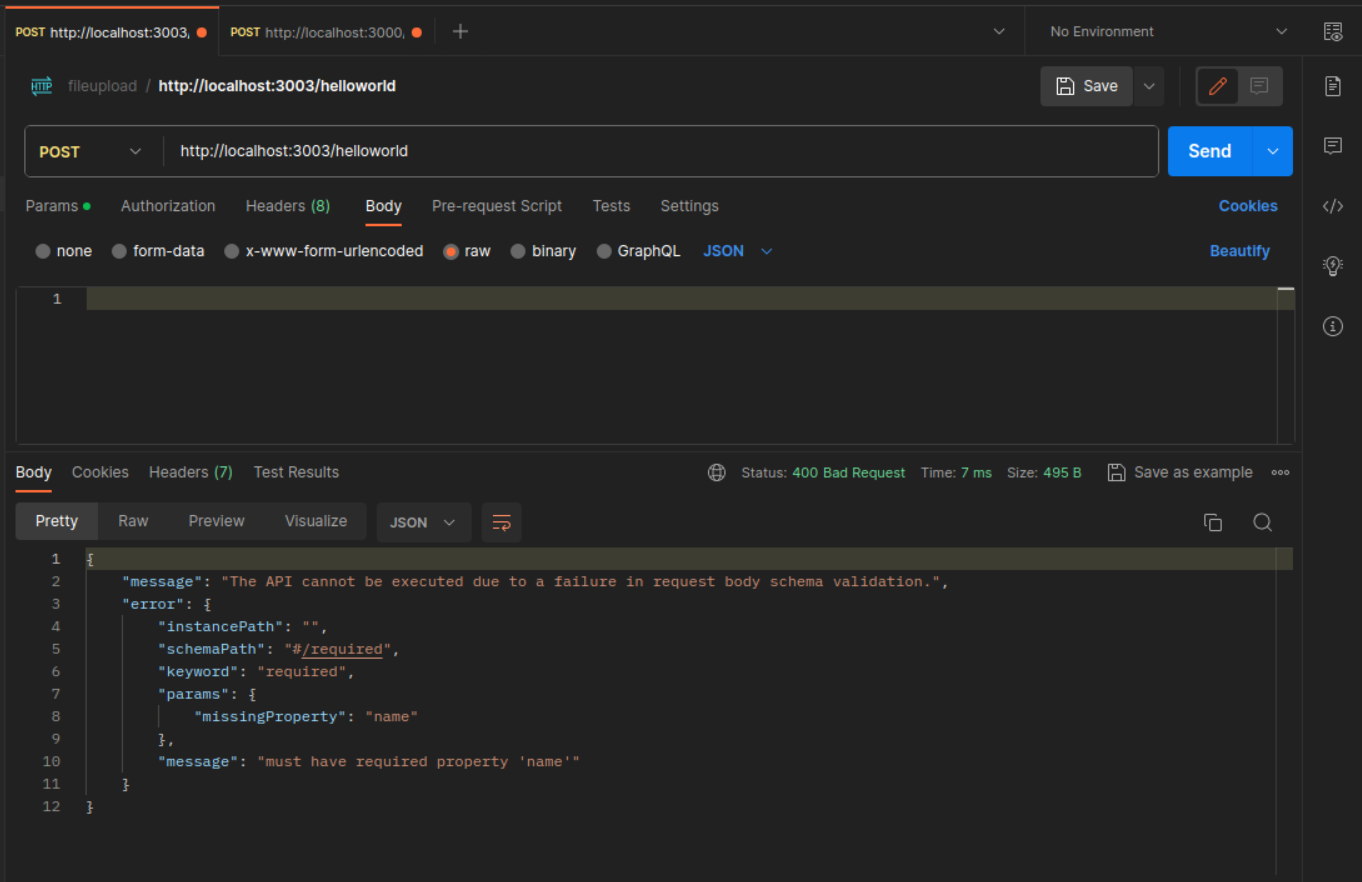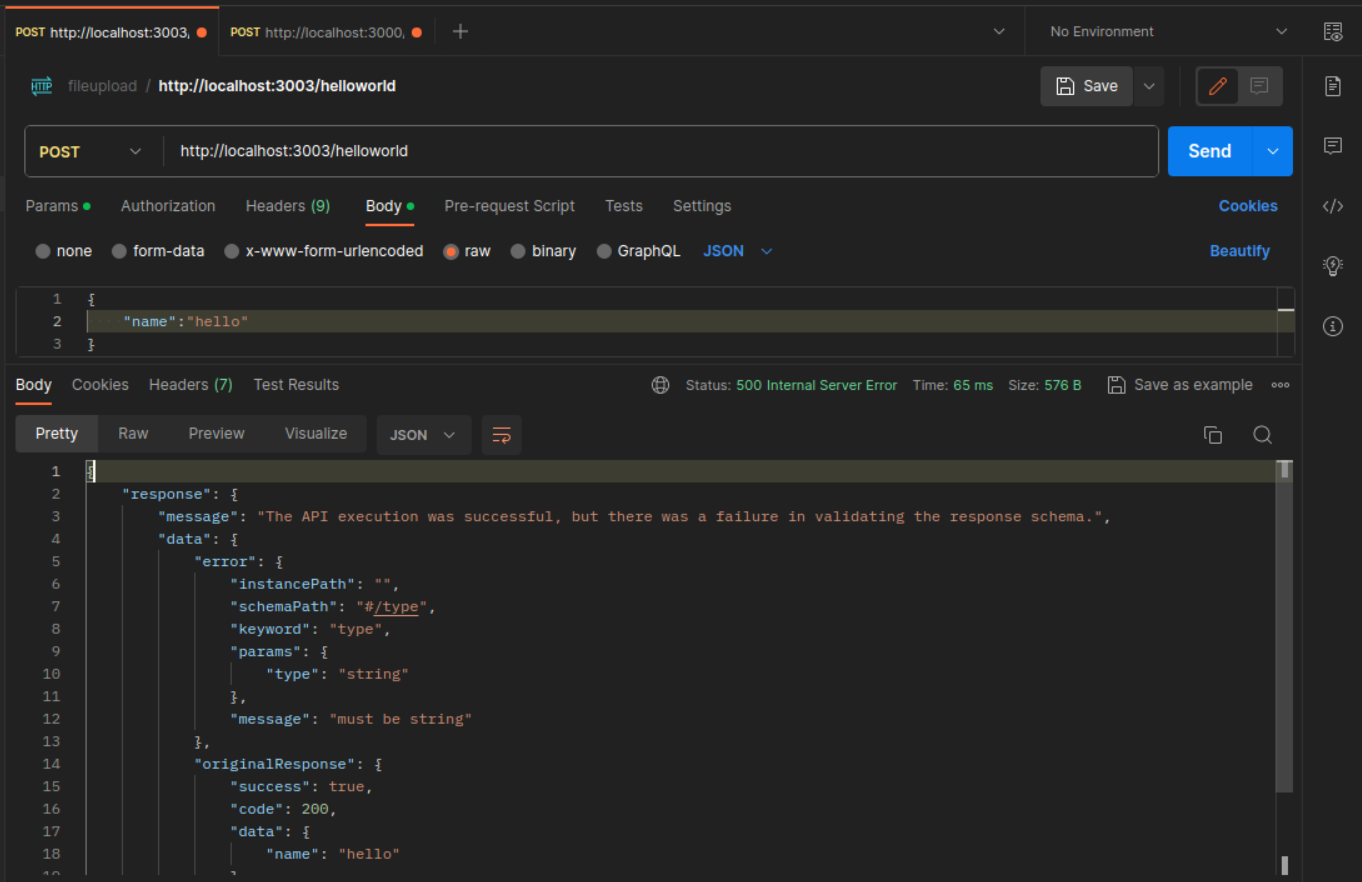JSON Schema validation
The Framework provides request and response schema validation
Request schema validation
We have the ability to define inputs and their types in our request schema, such as path parameters, query parameters, and request body. This allows the framework to validate whether the API has received the specified inputs in the expected types.
Whenever an API is triggered, AJV (Another JSON Schema Validator) verifies the request schema against the provided inputs. If the defined schema matches the inputs, it allows the workflow to execute. Otherwise, it throws an error with a status code of 400 and a descriptive message indicating where the schema validation failed.
Sample Request Schema
Request Schema with body
http.post./helloworld:
fn: helloworld
body:
content:
application/json:
schema:
type: object # type of the request body
required: [name] # Here make the properties mandatory ,can add multiple variable names
properties: # we can add properties that we get in body
name: # property name
type: string # property type
In the provided example, the type: object indicates the type of body received. Following that, the required variables are listed, specifying the properties of the body object that must be present. Similarly, it is also possible to define the types of the property variables present in the body.
Failed request schema validation

Request Schema with params
http.post./helloworld/:path_params:
fn: helloworld
params: # Params begin from here
- name: path_params # name of the parameter
in: path # type of parameter path/query
required: true # mandatory check for path parameter
schema:
type: string # type of path parameter
- name: query_params
in: query # query parameter
required: true
schema:
type: string
Sample with pattern
http.post./helloworld:
fn: helloworld
body:
content:
application/json:
schema:
type: object
required: [name]
properties:
name:
type: string
format: date
pattern: "[0-9]{4}-[0-9]{2}-[0-9]{2}" # setting patern in schema
Response schema validation
Just like request schema validation, there's also response schema validation in place. In this process, the framework checks the response type, validates the properties of the response, and ensures they align with the specified types.
The process of response schema validation involves storing the response schema, enabling the workflow to execute, and checking the response body along with its properties for validation.
Response schema validation includes two cases
- Failure in Workflow Execution
- Successful Workflow Execution but Fails in Response Schema Validation
Sample Response Schema
responses:
200:
content:
application/json:
schema:
type: object #Types of response
required: [name] # setting mandatory variables
properties:
name:
type: string #Type of property
If the response schema validation fails api return with 500 internal server error
Failed sample of response schema validation

400 and a message indicating a "bad request." Conversely, if the response schema validation encounters an issue, the APIs return a status of 500 along with an "Internal Server Error" message.Event with response and request schema validation
http.post./helloworld:
fn: helloworld
params:
- name: path_params
in: path
required: true
schema:
type: string
- name: query_params
in: query
required: true
schema:
type: string
body:
content:
application/json:
schema:
type: object
required: [name]
properties:
name:
type: string
responses:
200:
content:
application/json:
schema:
type: object
required: [name]
properties:
name:
type: string